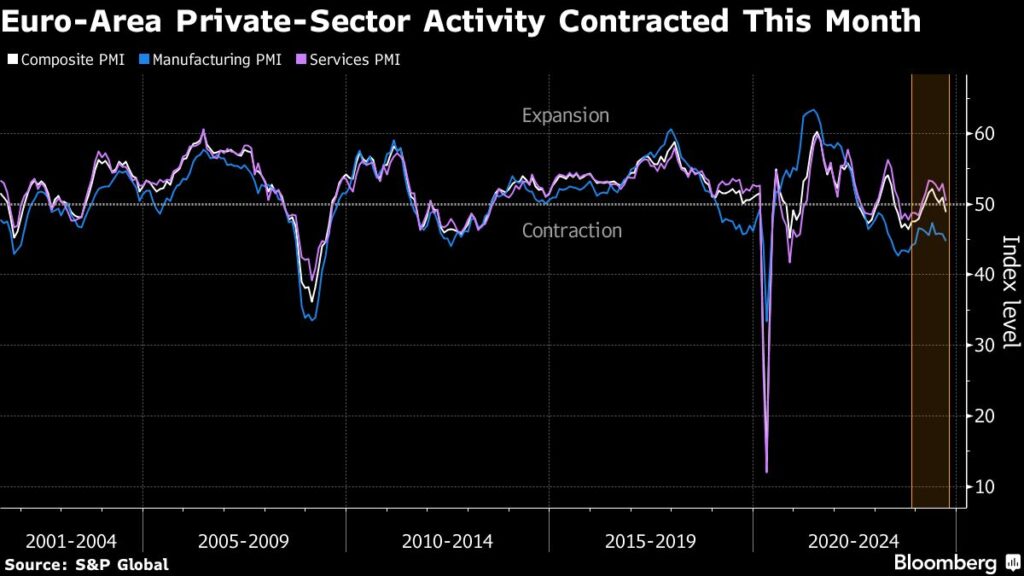(Bloomberg) — The European Central Bank is likely to lower borrowing costs at this month’s meeting and beyond, but some investors’ and economists’ easing expectations appear exaggerated, according to Governing Council member Martins Kazaks.
Most Read from Bloomberg
“We will discuss and decide when we meet next time and will get more information until then, but recent data clearly point in the direction of a cut,” the Latvian central-bank chief said in an interview in Riga. “The risks to the economy have become more pronounced and the risks of still sticky domestic, especially services, inflation and too-weak growth are increasingly balanced with some tilt towards weak growth.”
While he foresees further interest-rate reductions after October, he urged caution and pushed back against bets on rapid and aggressive loosening.
“I would warn the markets against running ahead of themselves on the economic situation in a similar way that happened at the turn of last year,” Kazaks said.
The comments are the first from one of the ECB’s more hawkish officials since weak economic data and a fresh retreat in inflation fueled wagers of speedier ECB action. Money markets now see an almost 90% chance of a move on Oct 17.
President Christine Lagarde hinted as much on Monday, saying officials will take growing optimism on consumer prices into account at that decision. Inflation slowed in September below the ECB’s 2% target for the first time since 2021, data Tuesday showed.
While Kazaks deems disinflation to be “on track” and wage gains moderating, he sees no reason to already declare victory. “It is too early to say that we’re done with inflation. Rates still need to stay somewhat restrictive, and they will remain such even with some further cuts.”
On the economy, the weakness is “worrying” — and he’s particularly concerned about a sudden softening of the job market.
“We risk approaching a tipping point, when some companies may start unwinding their labor hoarding because the recovery comes too slowly,” Kazaks said. “Then there could be some kind of a snowball effect.”
Speaking in Riga on Wednesday, Vice President Luis de Guindos warned that economic-growth risks remain “tilted to the downside,” even if activity should pick up eventually.
“We expect the recovery to strengthen over time, as rising real incomes and the gradually fading effects of restrictive monetary policy should support consumption and investment,” he said in a speech. “Exports should also continue contributing to the recovery as global demand picks up.”
A slew of analysts have changed their expectations for the ECB’s rate path in recent days, with banks including Goldman Sachs and JPMorgan now anticipating cuts at every meeting.
According to Kazaks, the “the direction for rates also after October is going to be down,” but he called for prudence because of factors including geopolitical risks and the US elections.
“With this high uncertainty any calendar-based forward guidance on rates would be counterproductive,” Kazaks said. “What happens at our December meeting, we have to wait and see.”
(Updates with Guindos starting in 10th paragraph.)
Most Read from Bloomberg Businessweek
©2024 Bloomberg L.P.
Read the full article here

